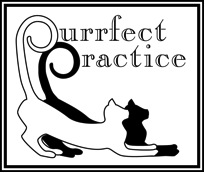Family
A Little Bit of Sun
06/01/13 12:40 Filed in: Community
The sun did come out this morning and it feels so nice. Yesterday was a gray, gloomy day. David came out with Nicolas yesterday and Nicolas, the Pirate Master, had fun playing pirates and swords with Grandpa Bob. I was beaned a few times during the battles. Now, I need to wonder if Oscar the Cat is doing any plotting based on what was noted in this following photo.


Comments

